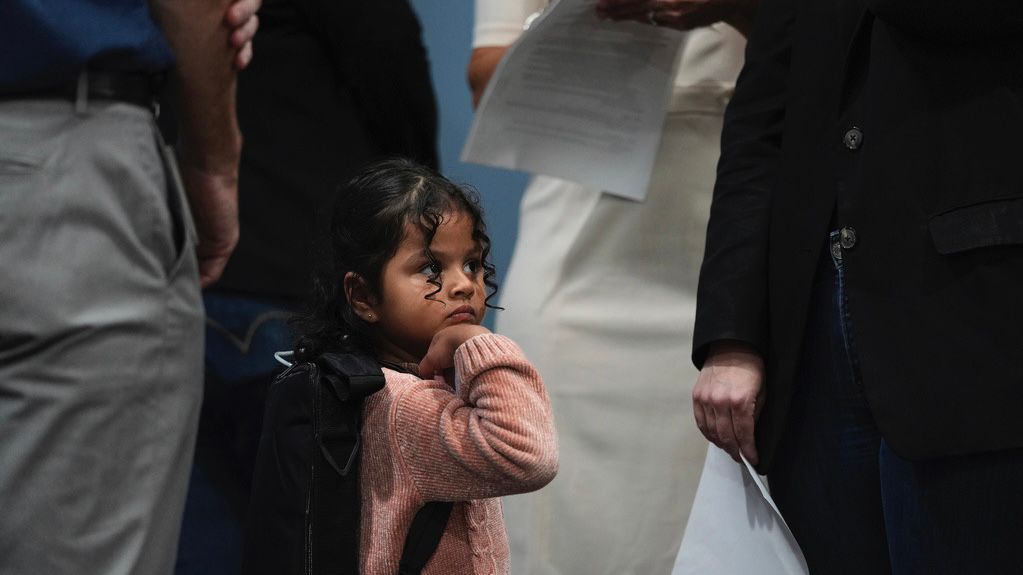LOS ANGELES — A 4-year-old girl from Mexico with a critical medical condition is at risk of being deported following the Trump administration’s revocation of her family’s humanitarian parole.
The girl, whose lawyers have given her the pseudonym Sofia Villa, has been in the United States since July 2023, when she and her parents were allowed into the country to receive medical treatment for a condition that requires her to be fed intravenously 14 hours each day.
“This treatment cannot be administered outside the United States, so it’s imperative that she remains here,” said Gina Amato Lough, director attorney at the nonprofit pro-bono legal firm Public Counsel, which is representing Sofia and her mother.
If Sofia is forced to leave the country, her doctors say she would die, Lough said. The girl suffers from a medical condition known as short bowel syndrome. In Mexico, her treatment required her to be hospitalized day and night, according to her mother, Deysi Vargas, and her condition did not improve.
“Humanitarian parole is for people like Deysi and Sofia,” Public Counsel Staff Attorney Rebecca Brown said Wednesday. “Deysi did everything she was asked to do to save her child’s life. She applied to enter the United States to get better treatment for her daughter and waited until that application was granted before coming here.”
After arriving at the U.S. border with Tijuana, Mexico, and receiving humanitarian parole almost two years ago, Sofia has been part of an intestinal rehabilitation program at Children’s Hospital Los Angeles. She now receives treatment at home with the help of a backpack medical device that allows her to receive nutrition intravenously and bypass her digestive system. The equipment’s manufacturer says the unit is not available outside the United States.
According to Public Counsel, Children’s Hospital said the girl’s condition has improved substantially since she began receiving treatment last year, but doctors cannot say how long she will continue to need treatment.
In March, the Department of Homeland Security began the process of ending the humanitarian parole program that was first established in the 1950s to allow individuals facing various humanitarian crises, including immediate medical needs, to stay in the U.S. temporarily.
Since April, Vargas has received three notices from U.S. Citizenship and Immigration Services saying her humanitarian parole was revoked and her work permit was canceled, she said. The notices ordered Vargas and her daughter to leave the United States immediately, according to Lough.
But DHS denied Wednesday that any decision has been made about Vargas' and Sofia's immigration status.
"Any reporting that Vargas and her family are actively being deported are FALSE," a senior official with the department told Spectrum News. "This family applied with USCIS for humanitarian parole on May 14, 2025, and the application is still being considered.”
Note: This article was updated with a statement from the Department of Homeland Security.




